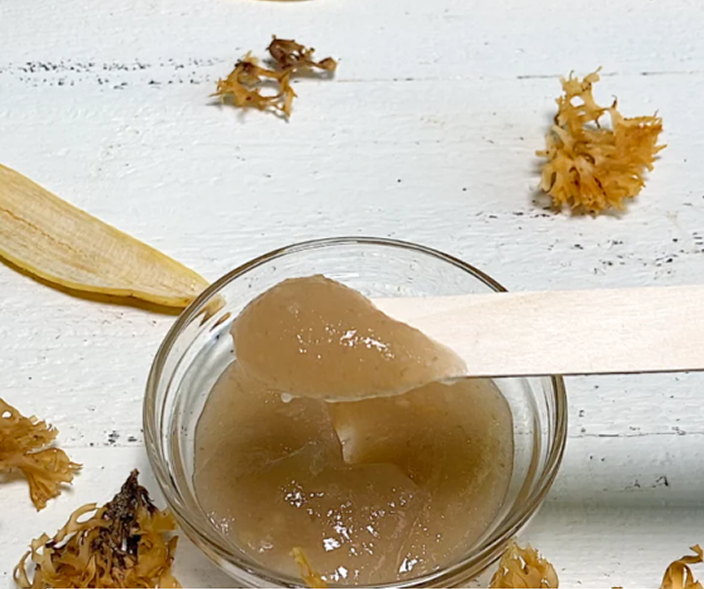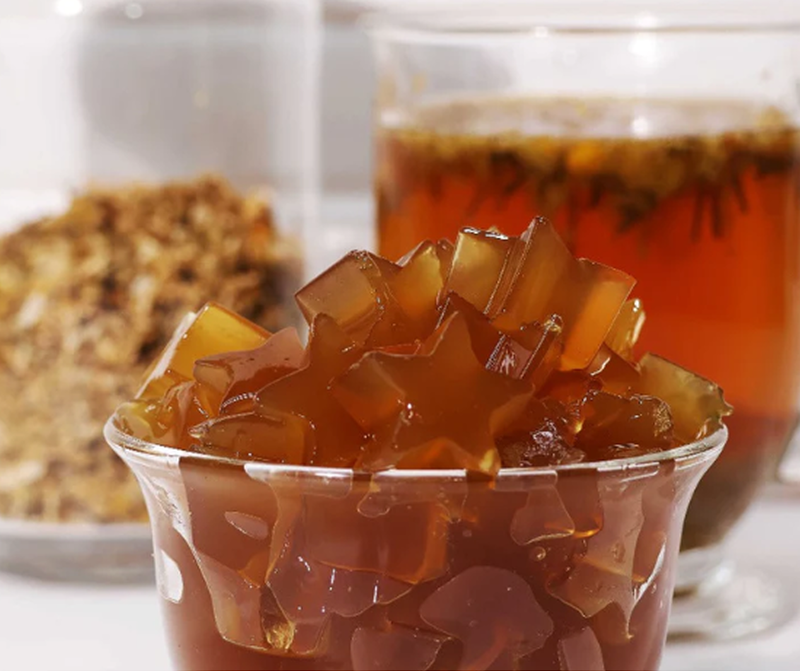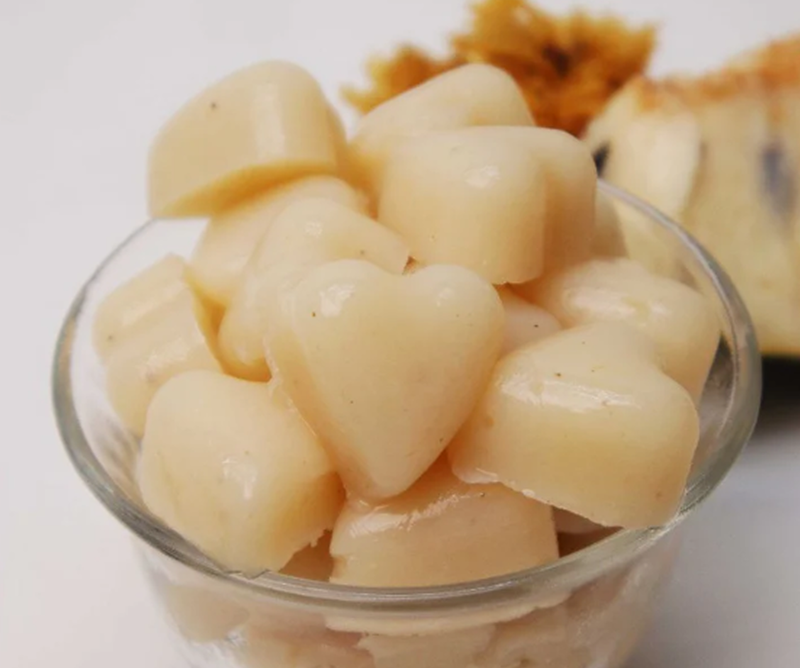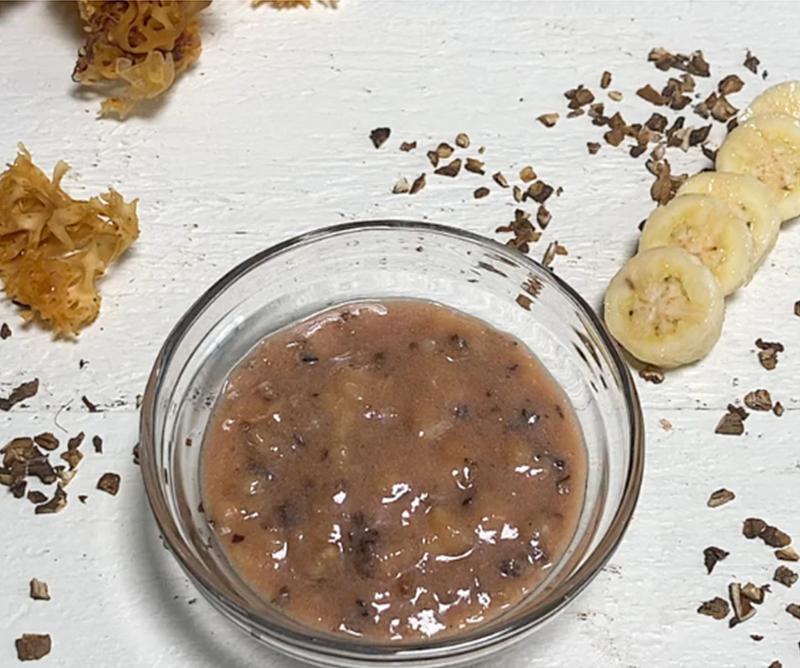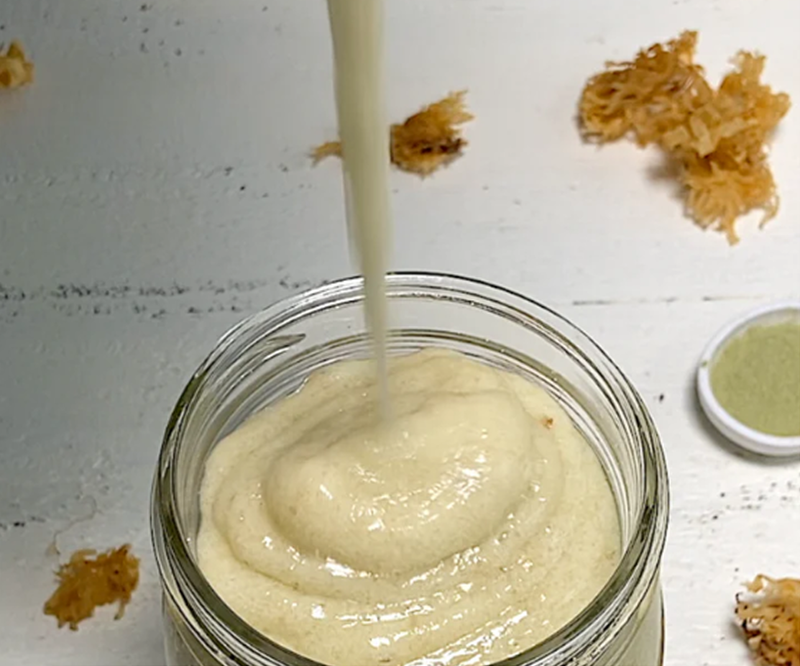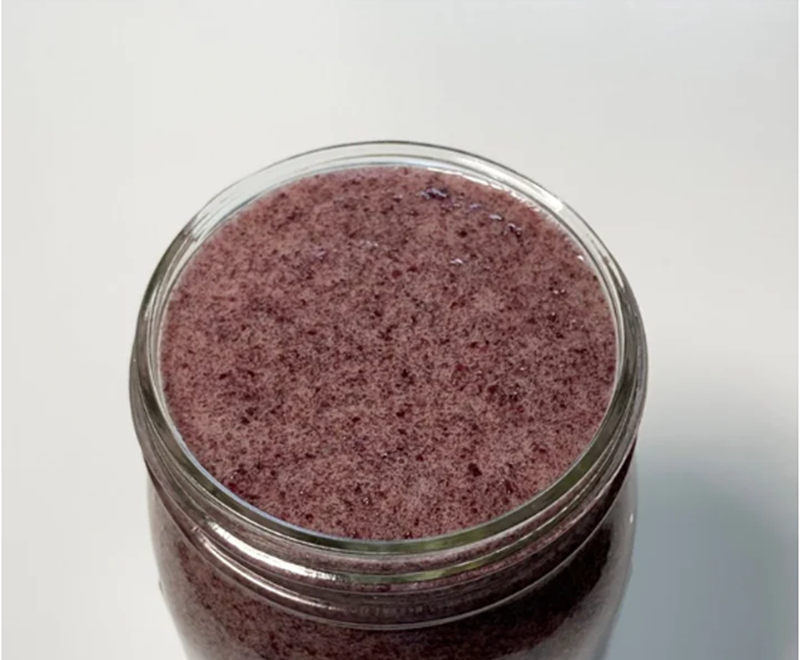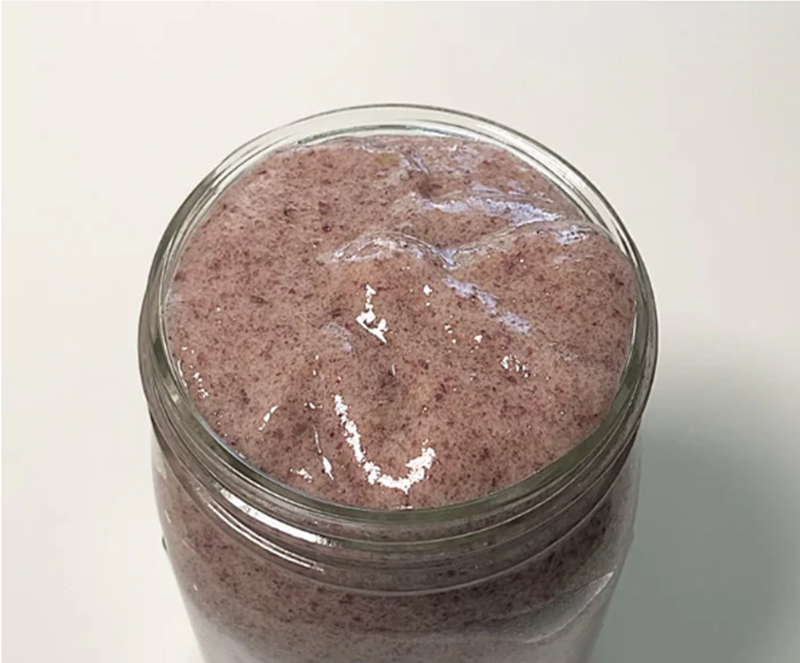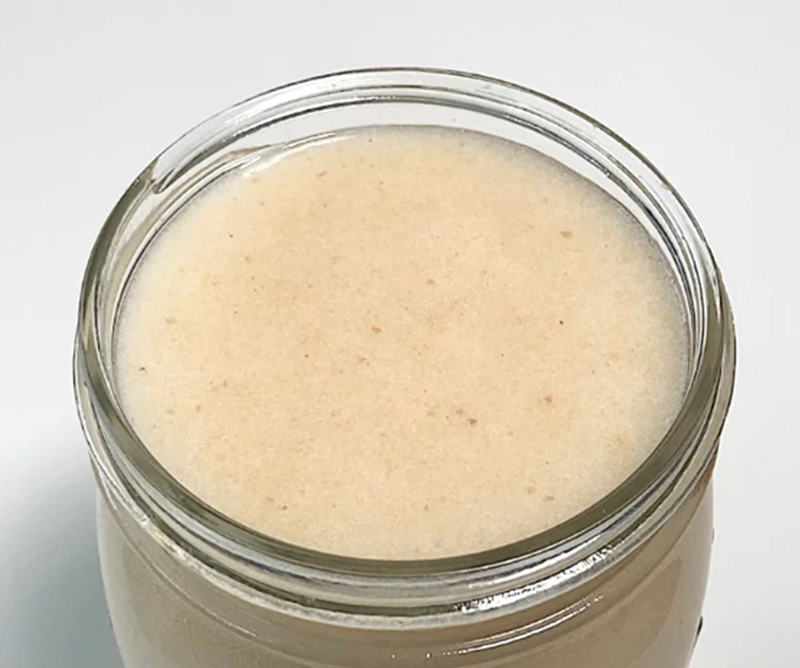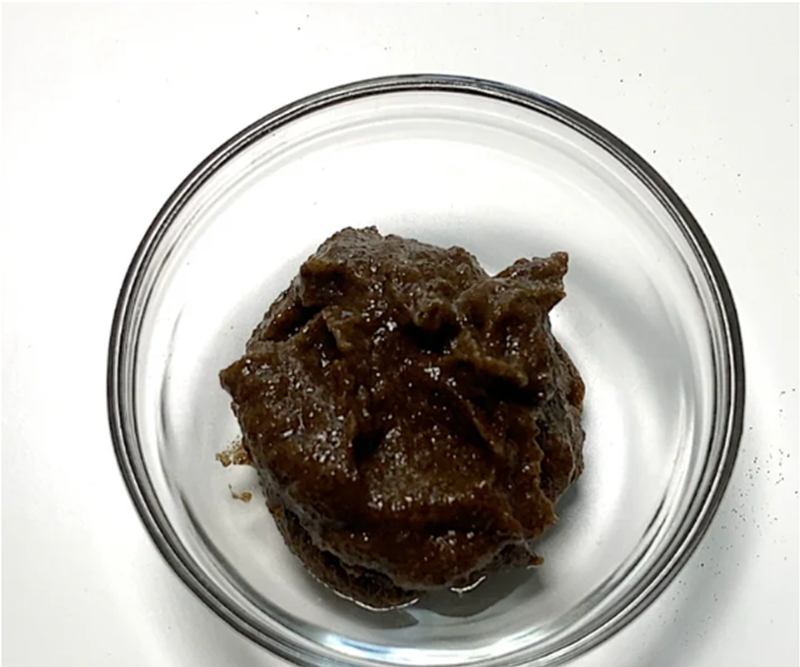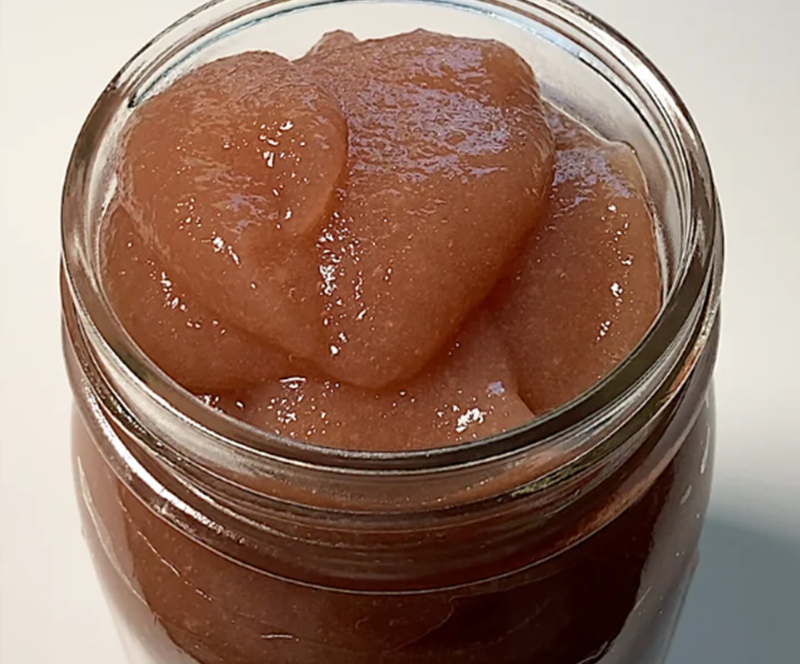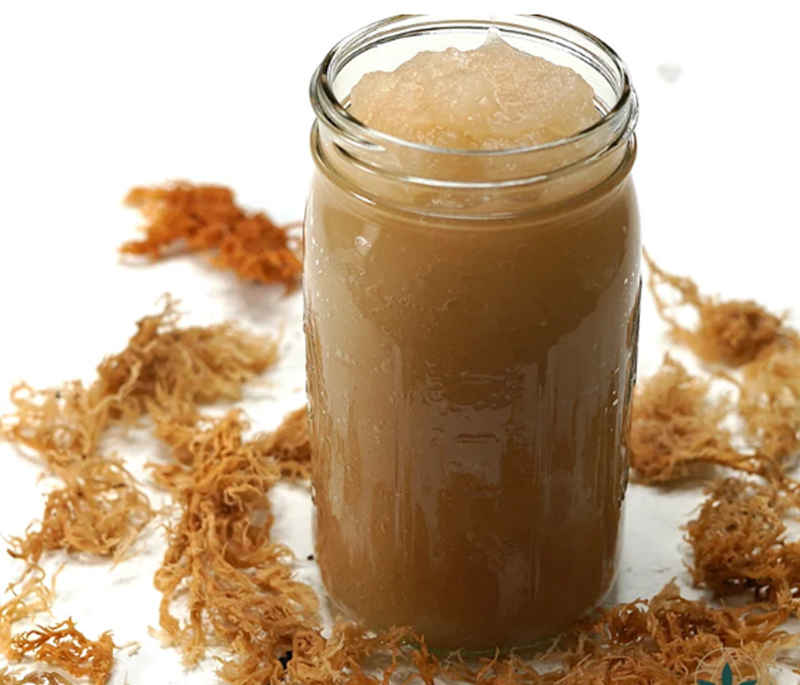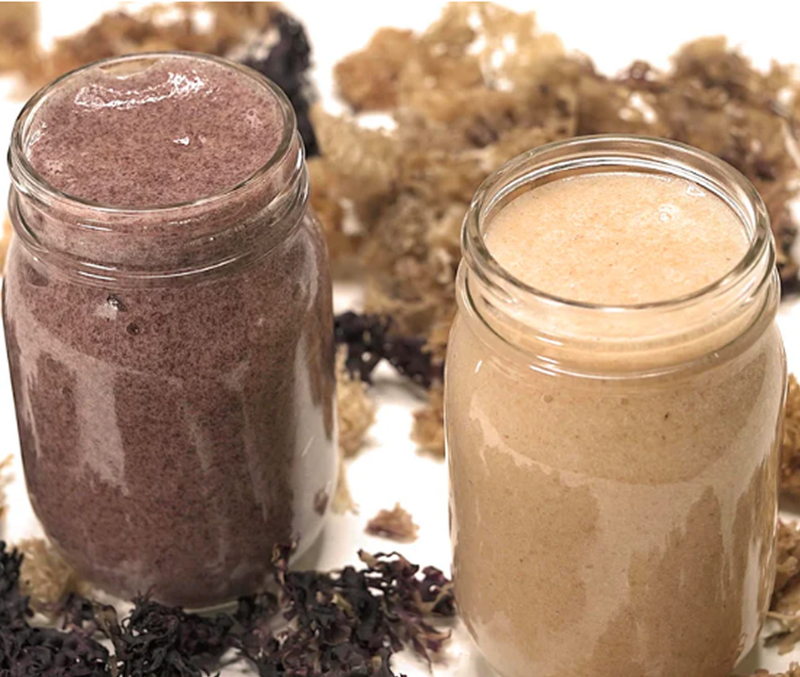

Notice how you’re starting to see sea moss a lot more regularly in your local health food store? At first, it was trending. Now sea moss has officially arrived, and it’s here to stay. Its growing popularity is riding the wave of algae in general. Following in the wake of spirulina and blue-green algae, sea moss is the latest natural algae to offer potential health benefits for today’s active lifestyles.*
So if your interest has been piqued by this trending healthy food, you’re not alone. Sea moss has become a popular addition to the meals and drinks of many people who use it as a health supplement. And you can try it in a variety of sea moss supplements with different forms, from raw sea moss, sea moss capsules, sea moss soap to sea moss gel which can be added to smoothies, juices, and foods. But what’s behind this sudden surge in popularity? And more importantly, is sea moss really as healthy as it's claimed to be?
Nutritional Profile of Sea Moss
Before discussing the potential benefits of sea moss, it is helpful to grasp what exactly makes sea moss good. This marine algae provides vitamins and minerals that are hard to obtain from terrestrial food.*
A standard serving of sea moss equaling 2 tablespoons (10 grams) contains the following nutrients:
-
Iodine: Supports the production of thyroid hormones, which are vital for human growth and development.*
-
Calcium: Helps building and maintaining strong bones.*
-
Potassium: Helps with the proper function of the heart and muscles.*
-
Magnesium: Vital for hundreds of biochemical reactions.*
-
Iron: Assists in the transport of oxygen all over your body and supports healthy hair, skin, and nails.*
-
Zinc: Aids the immune system in working properly.*
-
Vitamin B3 (Niacin): Assists in the conversion of food to energy.*
-
Vitamin B6 (Pyridoxine): Important for normal brain development and for keeping the nervous and immune system healthy.*
-
Vitamin B9 (Folate): Vital for the division of cells.*
-
Vitamin C: Protects the body from the kind of oxidative.*
-
Dietary fiber: Aids a healthy digestive system.*
The finest sea moss is the species Chondrus crispus which grows in cold waters and absorbs nutrients from the rocks and natural landscape around it. In contrast, many Caribbean varieties are artificially grown on ropes and in pools. As a result, they may not contain the same beneficial mineral composition as our wildcrafted sea moss.*
What are the Potential Health Benefits of Sea Moss?

May Strengthen Immunity
Compounds contained within sea moss may offer benefits to the immune system.* This marine algae is filled with amino acids, vitamin C, and antioxidants, substances that are known to promote immune system function and protect the body from the kind of oxidative stress that can lead to illness.*
May Improve Gut Health
Sea moss’s gel-like texture has a soft, slippery feel that may gently coat the surfaces of your digestive tract, from your throat to your intestines.* This unique texture may even provide a kind of natural "flossing" helping to clear away mucus and lingering residues from the throat and esophagus as it moves through.* This gentle cleansing may support a healthier pathway for food and air.
May Assist in Weight Loss
If you are trying to control your weight, it may be beneficial to incorporate sea moss into your diet. All that fiber content may help you feel full, so you’ll be eating less between meals, leading to a lower overall caloric intake.*
Sea moss also contains iodine, which is crucial for maintaining optimal thyroid function.* Your thyroid regulates metabolism, which is the rate at which your body converts food into energy.* When your metabolism is firing efficiently, you’re burning calories freely.*
May Promote Heart Health
Your cardiovascular system might also benefit from sea moss consumption.* The potassium content may help regulate blood pressure by opposing the effects of sodium and allowing the blood vessel walls to relax.*
May Help Regulate Blood Sugar
A 2015 study conducted in the Journal of Nutritional Biochemistry found that seaweed extracts similar to those in sea moss can improve insulin sensitivity and glucose tolerance.* Sea moss contains fibers that may slow down the digestion of carbohydrates and the absorption of sugars, which may prevent blood sugar spikes after meals.*
May Increase Energy & Iron Levels
Constantly feeling fatigued? You may try using sea moss for energy. The iron in this ocean superfood may support red blood cell production.* And those cells are essential for delivering oxygen all around your body.* Increased oxygen means a whole lot more energy and a lot less tiredness.
Sea moss contains an array of minerals that may support the production of ATP, which is the energy currency of our cells.* Magnesium, in particular, is very important for energy production because it serves as a cofactor for over 300 enzymatic reactions, most of which are related to energy metabolism.*
May Support Thyroid Function
Sea moss is a natural source of iodine, an essential mineral the thyroid needs to produce hormones.* Since the thyroid regulates key functions like metabolism, energy levels, and mood, getting enough iodine is vital for overall well-being.*
May Promote Healthy Hair, Skin, and Nails
Sea moss provides naturally occurring minerals that may help support your body’s natural collagen synthesis, a key protein for firm-looking skin and resilient hair and nails.* Nutrients like zinc and vitamin A contribute to normal cell turnover, which supports clear-looking skin and strong nails.*
What are the Potential Side Effects of Sea Moss?

Excess Iodine Intake
Iodine is important for your thyroid, and sea moss is packed with it.* But consuming too much iodine could have detrimental effects, especially if it’s already not functioning well. So, if you have a thyroid condition or take medication for it, it’s a good idea to check with your doctor before adding sea moss to your diet.
Heavy Metal Absorption
An investigation published in 2018 in the journal Environmental Science and Pollution Research found that seaweeds are capable of accumulating substantial amounts of heavy metals from both natural and anthropogenic sources. This is the reason why the source matters when one is buying sea moss. The safest products come from clean waters and are tested for contaminants. At Alkaline Herb Shop, all sea moss products are tested by a third party lab for heavy metals, identity, and microbes.
Allergic Reactions
Although it's not very common, some individuals may experience allergic reactions to sea moss. If you are already allergic to other types of seafood or to iodine, you should be careful when considering the addition of sea moss to your diet.
Studies indicate that different marine species can cause cross-reactivity. If you are allergic to one species, you may well be allergic to others. The symptoms of an allergic reaction may include any of the following: itching, swelling, breaking out in hives, breathing difficulty, or digestive upsets.
If you're trying sea moss for the first time, begin with a small quantity, and stop using it if you notice any negative reactions.
May Cause Intestinal Inflammation
While sea moss is often praised for its gut-healing benefits, it may not have the same effect for everyone.* Even for those with the right genetic predisposition, some individuals might still experience digestive sensitivity or irritation when consuming it.
Carrageenan, a component of sea moss, may provoke intestinal inflammation in some people․* This is particularly significant for individuals with bowel inflammatory disorders like Crohn's disease and ulcerative colitis.
Start with small amounts and watch how your body responds. If you notice increased bloating, gas, or digestive disturbances, sea moss may not be for you.
Time To Try
Potential sea moss benefits, from immune support to improved digestion and skin health, are note-worthy.* Its rich mineral profile makes it a valuable addition to a balanced diet, especially for those looking to supplement nutrients that can be difficult to obtain from land-grown foods.*
While research on sea moss is still ongoing, the traditional uses and initial studies suggest it has health-promoting properties. But you need to keep in mind that sea moss isn’t a magic fix, it works best when combined with a balanced diet, regular exercise, and quality sleep as part of a healthy lifestyle.* Start with small amounts, listen to your body, and consult with a healthcare provider if you have existing health conditions or take medications.
FAQs
What are potential benefits of sea moss?
Sea moss is a nutrient-rich sea vegetable that may help support general wellness including digestion, energy, skin, and immune health due to its naturally high mineral content.*
Can sea moss help with digestion and gut health?
Yes, sea moss contains prebiotic fiber that may feed beneficial gut bacteria, and its mucilaginous properties can soothe the digestive tract.*
Does sea moss support weight loss?
Sea moss may support weight management by providing fiber that helps you feel full longer, supporting thyroid function for healthy metabolism, and potentially reducing the absorption of dietary fats.* However, it's not a magic weight loss solution and works best alongside healthy eating and exercise.
Can I take sea moss if I have high blood pressure?
Sea moss contains potassium, which may help regulate blood pressure.* However, if you're on blood pressure medications, consult your doctor before adding sea moss to your routine as it could potentially interact with your treatment.
Can sea moss help with skin health and acne?
Many people report improvements in skin clarity and texture with sea moss use, both topically and internally. Its zinc, vitamin C, and vitamin A content may help reduce inflammation and support skin cell regeneration.*
Can I use sea moss for energy?
Yes, you can use sea moss to support your energy levels but it won’t give you an instant boost. Instead, sea moss may provide essential nutrients such as iron, iodine, magnesium, and B vitamins that help support metabolism, thyroid function, and oxygen transport.* With regular use, it may help maintain balanced energy levels and overall wellness throughout the day.*
Can sea moss help with joint pain and inflammation?
Sea moss contains anti-inflammatory compounds that may help reduce joint pain.* Its mineral content, particularly calcium and magnesium, also may support bone and joint health.*
How does sea moss support immune function?
Sea moss contains compounds with antimicrobial and antiviral properties, plus vitamins and minerals that may support white blood cell production and overall immune response.*
How many minerals does sea moss have?
Sea moss contains a range of naturally occurring minerals, including iron, iodine, potassium, calcium, magnesium, zinc, and vitamins like B3, B6, B9, and C. It's also rich in antioxidants and prebiotic fiber.* However, the exact number of minerals it provides is not clearly defined.
Does sea moss have iron?
Yes. Sea moss contains iron, but the amount can vary depending on the growing conditions and source.*
Does sea moss have collagen?
Sea moss does not contain collagen itself. However, it provides minerals that may support the body’s natural collagen production, such as zinc, vitamin C, and other trace nutrients.* These nutrients play a role in normal cell turnover and help the body carry out processes involved in maintaining healthy-looking skin, hair, and connective tissue.*
Does sea moss have iodine?
Yes. Sea moss is an excellent source of iodine.
Does sea moss have B12?
There is no clear evidence that sea moss contains vitamin B12, so it should not be relied on as a source of it.
Does sea moss have magnesium?
Yes. Sea moss contains magnesium though the specific amount may differ based on the source.*
Does sea moss have vitamin D?
Sea moss is not recognized as a source of vitamin D, and there is no reliable evidence that it provides this nutrient.





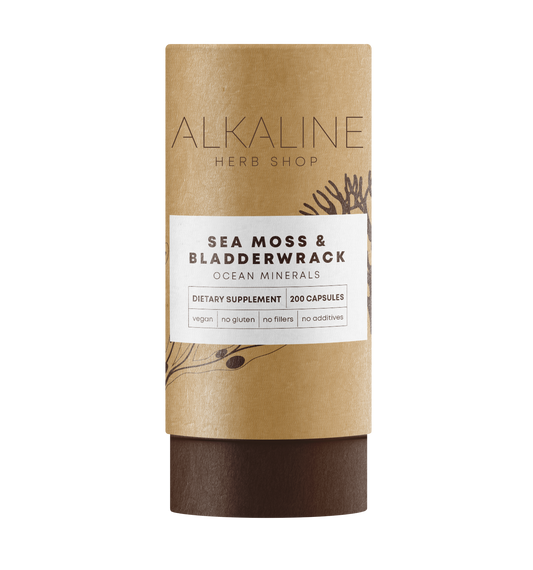
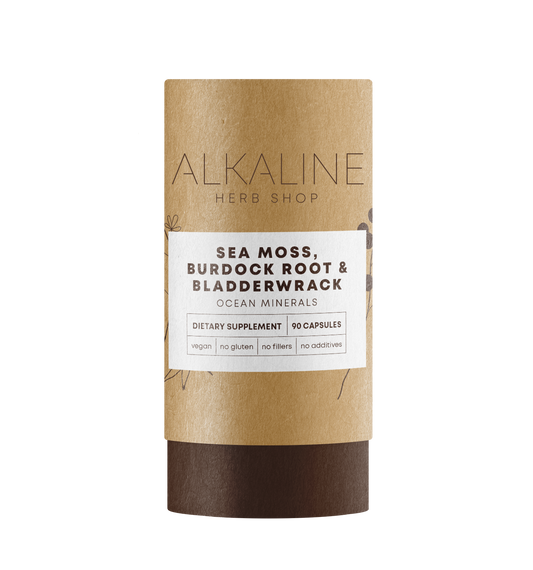
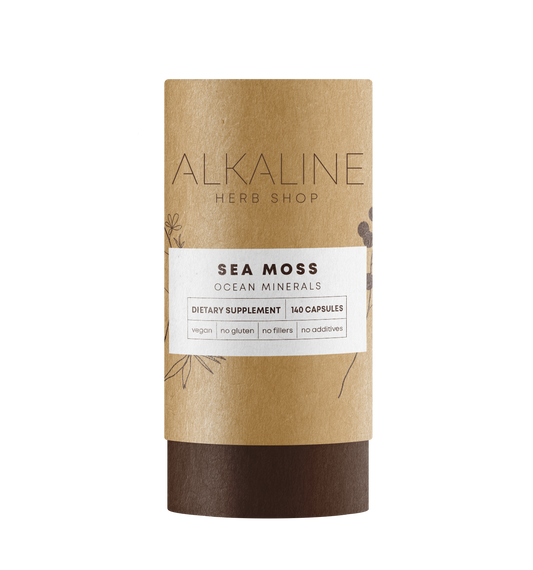
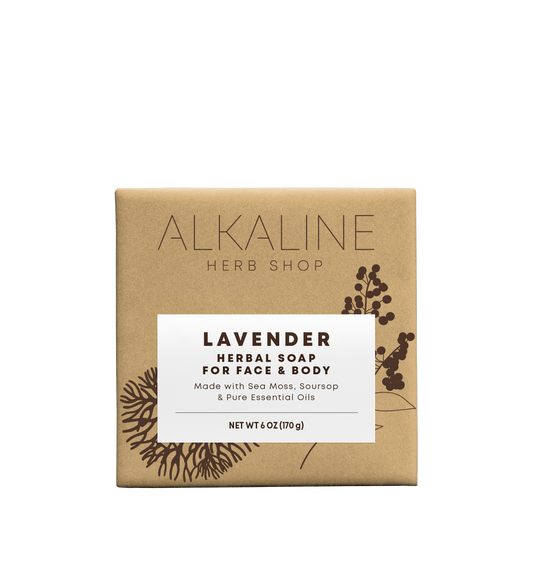
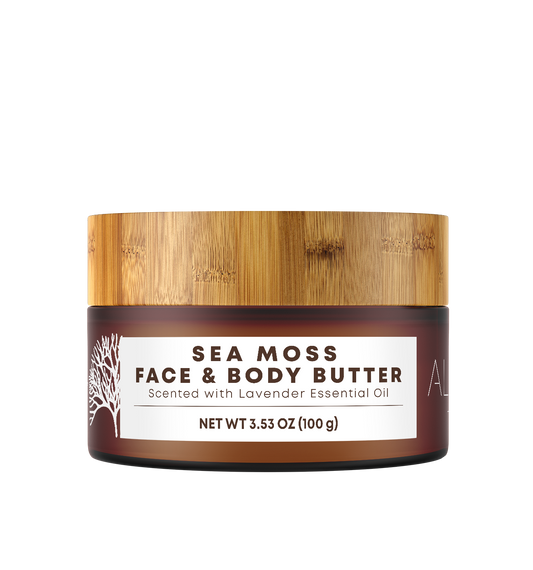
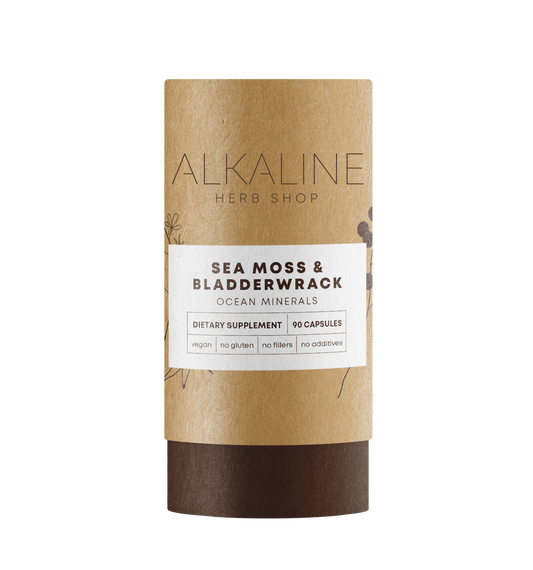
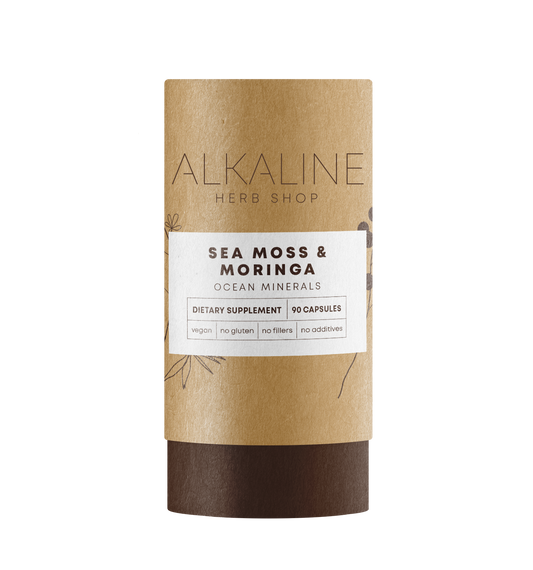
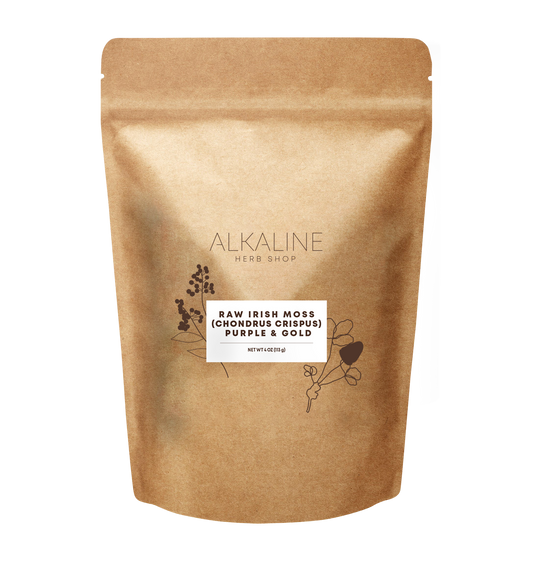
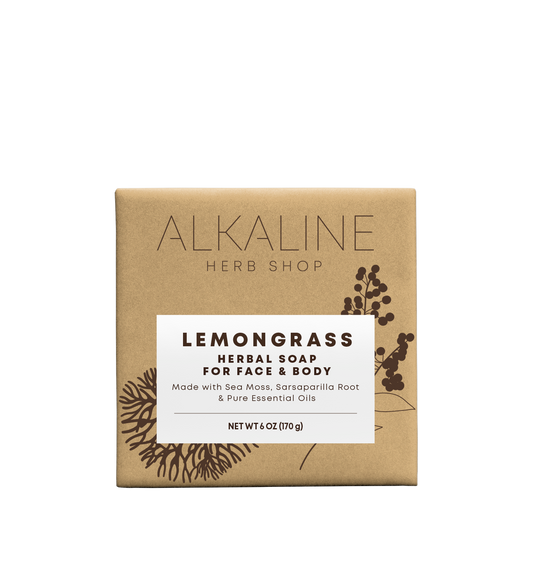
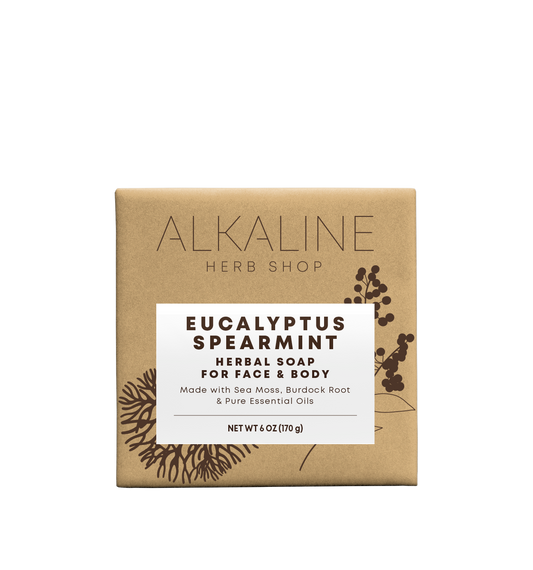
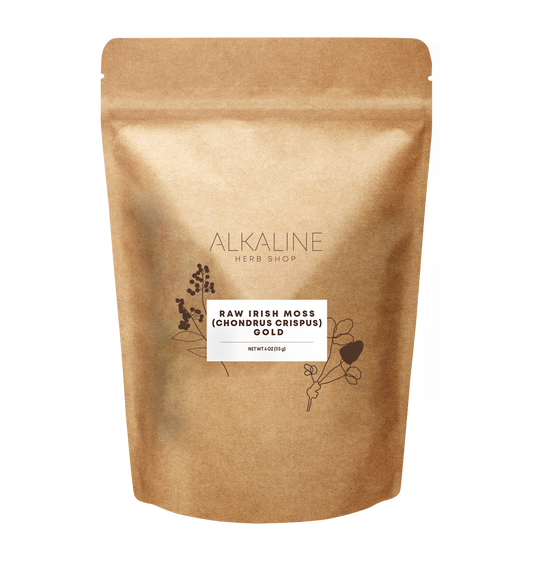
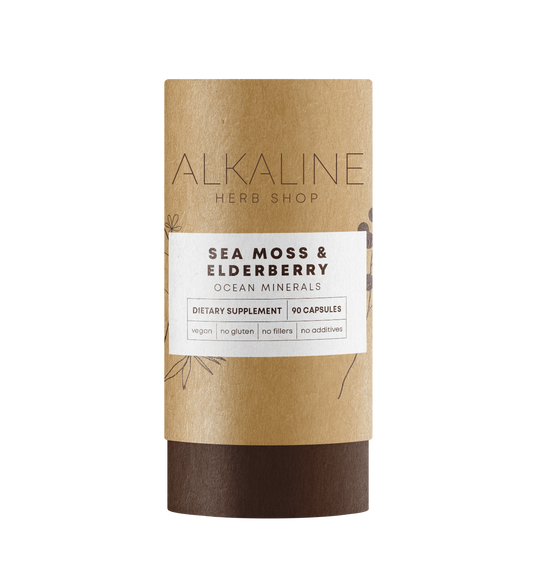
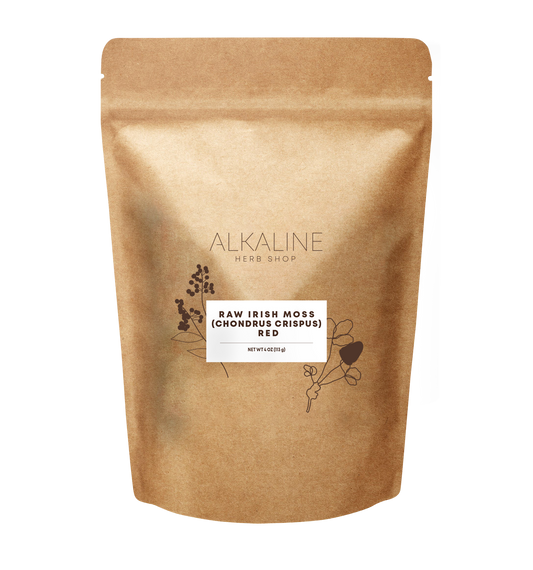
.png?v=14052428765372906161761701960) Previous Post
Previous Post
%20copy.png?v=62173825240595680121761701960)

